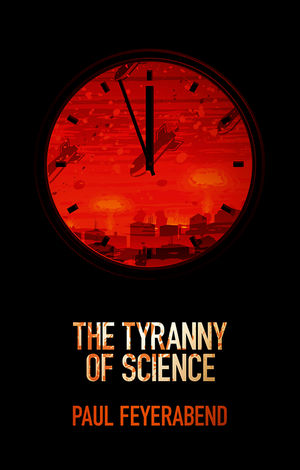The Tyranny of ScienceISBN: 978-0-7456-5189-7
Hardcover
180 pages
May 2011, Polity
 This is a Print-on-Demand title. It will be printed specifically to fill your order. Please allow an additional 10-15 days delivery time. The book is not returnable.
Other Available Formats: Paperback
|
||||||
British Journal for the History of Science
"Each of the four lectures is excellent and interrelateswith the others. Feyerabend's appealing and evocative entrances to scientific ideological claims permeate, and their lucidity will make identification and extraction of key concepts readily possible for scholars."
The Year's Work in Cultural and Critical Theory
"Offers intrepid scholars much to go on (on the relationship between Wittgenstein and Feyerabend), as well as being an entertaining and vigorous philosophical exercise in itself."
Philosophical Investigations
"In this posthumously published book, the maverick philosopher of science Paul Feyerabend questions the dominance of abstract, theoretical, objectivist science over more human modes of thought."
New Scientist
"Stimulating, thought-provoking, and hugely entertaining."
Morning Star
"Its clear conversational style makes the book a useful
introduction to Feyerabend's thought."
Claremont Review of Books
"Both the style of presentation, and the question and answer
sessions, will make this book accessible to a popular readership.
It will be met with enthusiasm by those with a prior engagement
with Feyerabend’s work."
Metascience
"Feyerabend is not attacking science but rather the ideology of
science and the metaphysical pronouncements of philosophers and
theoreticians. He makes an eloquent and imaginative plea for the
importance of the diverse forms of knowledge embodied in the
practicalities of everyday life."
David Bloor, University of Edinburgh
"The Tyranny of Science is no work of arid scholarship or
technical philosophy. It is the work of a philosophical
story-teller who recounts 'fairytales' to situate the ideas he
discusses. Feyerabend brings science and philosophy down from the
heights of abstract theory to the ground of practice and experience
which animates them."
Howard Sankey, University of Melbourne



